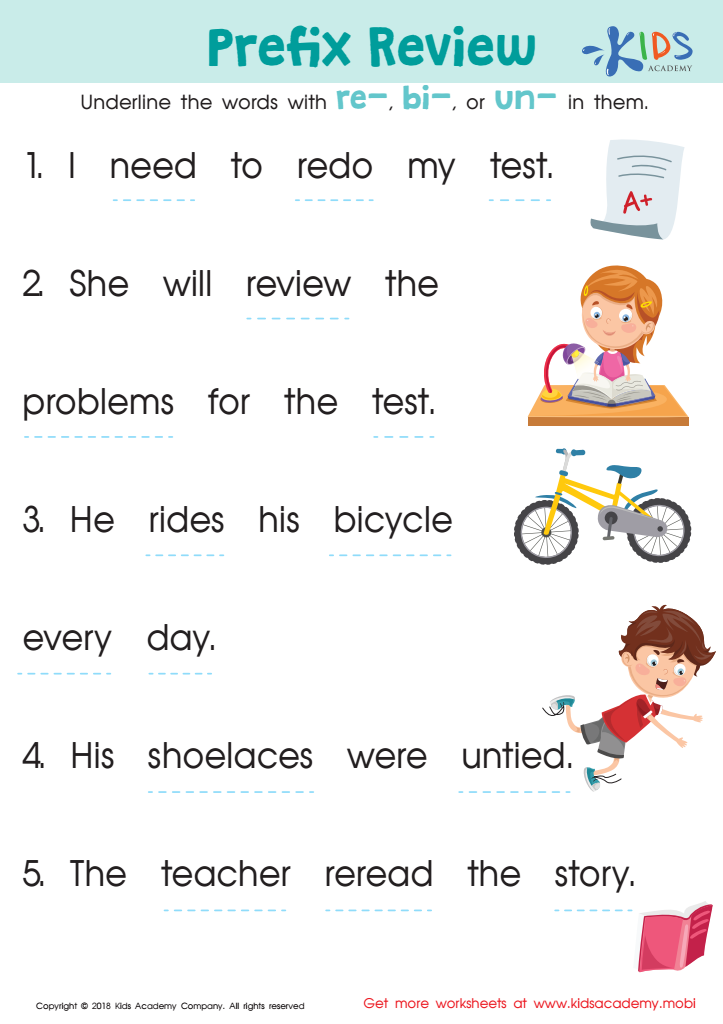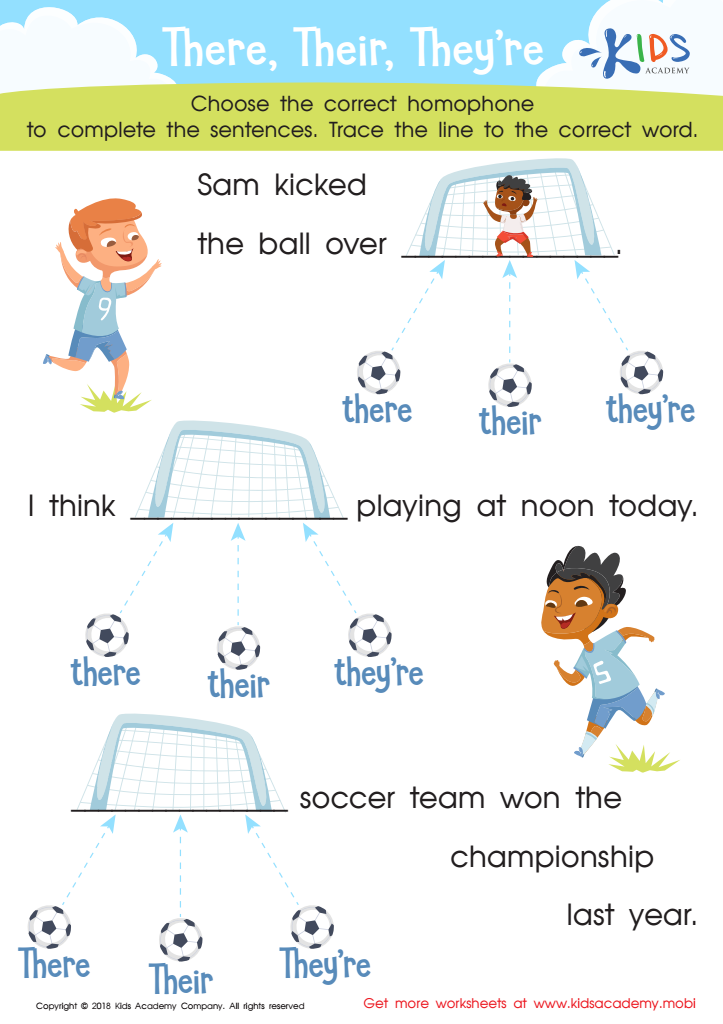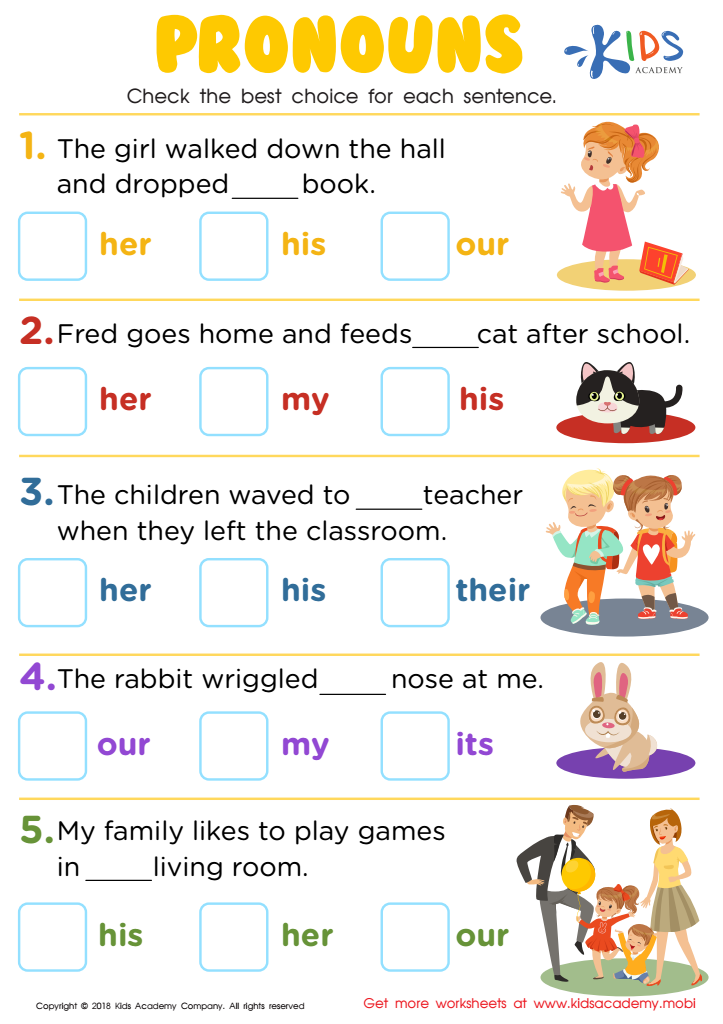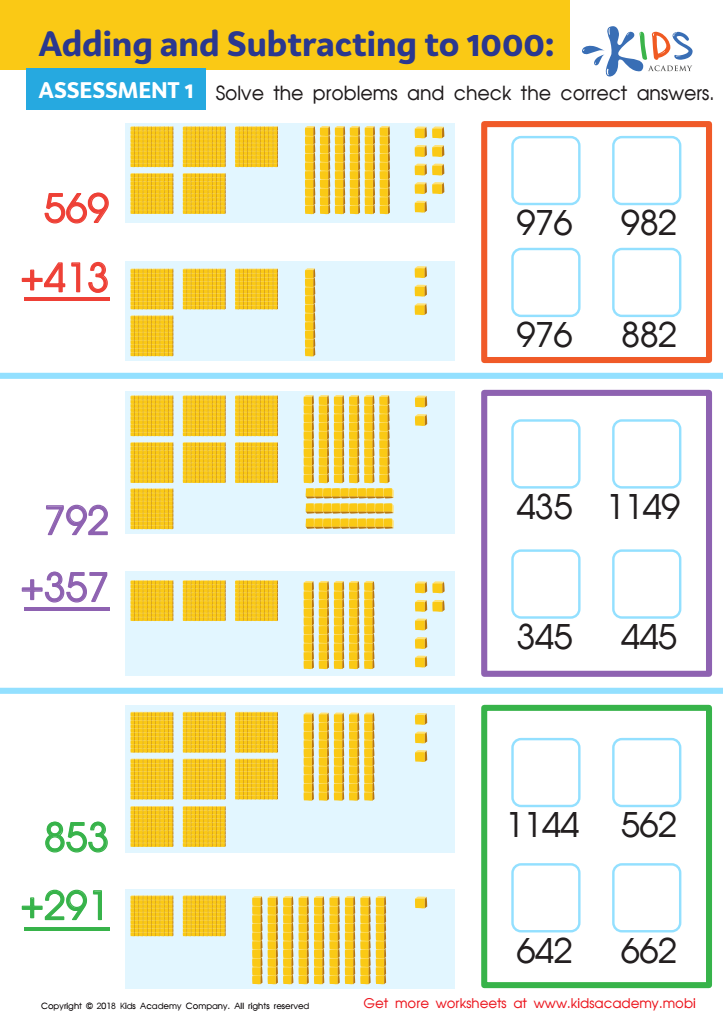Grammar skills Worksheets for Ages 8-9
4 filtered results
-
From - To
Enhance your child's language abilities with our engaging Grammar Skills Worksheets designed for ages 8-9. These expertly crafted resources focus on fundamental grammar concepts, making learning both effective and enjoyable. Topics include parts of speech, sentence structure, punctuation, and more, allowing young learners to master essential skills progressively. Each worksheet is designed to align with curriculum standards, ensuring that your child is not only catching up but also excelling. Perfect for use at home or in the classroom, these worksheets provide the practice needed for confidence and success in grammar. Boost your child's communication skills with our comprehensive grammar worksheets today!


Prefix Review Worksheet


There, Their, They're Worksheet


Pronouns Worksheet


Adding and Subtracting to 1 Worksheet: Assessment 1
Parents and teachers should care about grammar skills for children ages 8-9 because it forms the foundation for effective communication and future academic success. At this age, kids are transitioning from basic sentence formation to more complex structures. Strong grammar skills help them express their thoughts clearly and accurately, both in writing and speaking.
Good grammar helps prevent misunderstandings. When children structure sentences properly, they're better able to convey their intentions and needs, which is crucial for both social interactions and learning environments. For example, understanding the difference between "your" and "you're" or "there," "their," and "they're" can prevent confusion in both spoken and written communication.
Additionally, grammar is key for reading comprehension. As children encounter more sophisticated texts, a solid grasp of grammar rules helps them understand and analyze what they read. This improves their ability to learn across all subjects, not just language arts.
Lastly, strong grammar skills build confidence. When children can write and speak correctly, they feel more competent and are more likely to engage in classroom activities and discussions. This active participation is essential for their intellectual and emotional development.
In summary, focusing on grammar at ages 8-9 sets the stage for children's effective communication, academic growth, and self-confidence, making it a crucial element of early education.
 Assign to My Students
Assign to My Students





.jpg)
.jpg)












